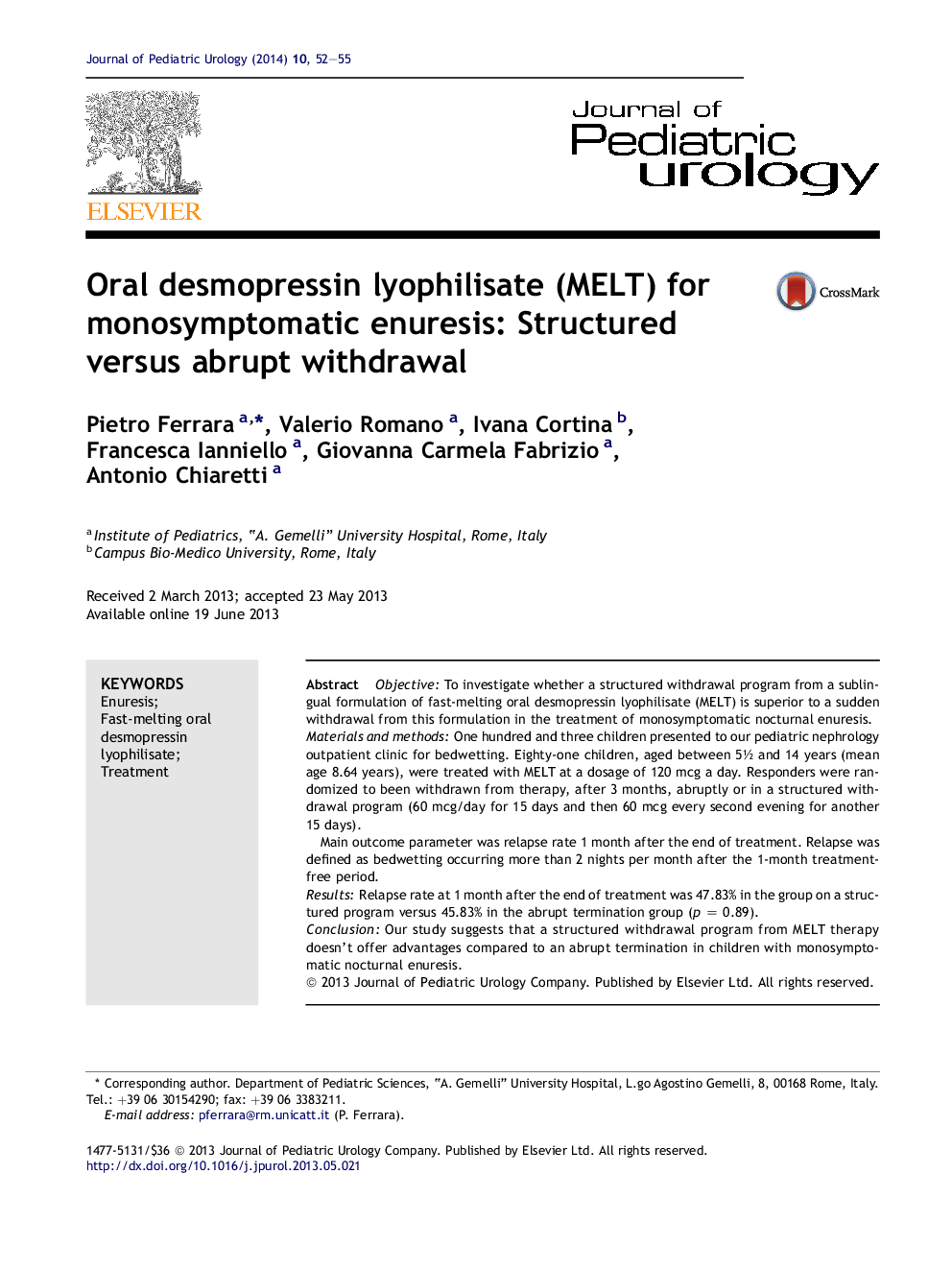| Article ID | Journal | Published Year | Pages | File Type |
|---|---|---|---|---|
| 4162958 | Journal of Pediatric Urology | 2014 | 4 Pages |
ObjectiveTo investigate whether a structured withdrawal program from a sublingual formulation of fast-melting oral desmopressin lyophilisate (MELT) is superior to a sudden withdrawal from this formulation in the treatment of monosymptomatic nocturnal enuresis.Materials and methodsOne hundred and three children presented to our pediatric nephrology outpatient clinic for bedwetting. Eighty-one children, aged between 5½ and 14 years (mean age 8.64 years), were treated with MELT at a dosage of 120 mcg a day. Responders were randomized to been withdrawn from therapy, after 3 months, abruptly or in a structured withdrawal program (60 mcg/day for 15 days and then 60 mcg every second evening for another 15 days).Main outcome parameter was relapse rate 1 month after the end of treatment. Relapse was defined as bedwetting occurring more than 2 nights per month after the 1-month treatment-free period.ResultsRelapse rate at 1 month after the end of treatment was 47.83% in the group on a structured program versus 45.83% in the abrupt termination group (p = 0.89).ConclusionOur study suggests that a structured withdrawal program from MELT therapy doesn't offer advantages compared to an abrupt termination in children with monosymptomatic nocturnal enuresis.
